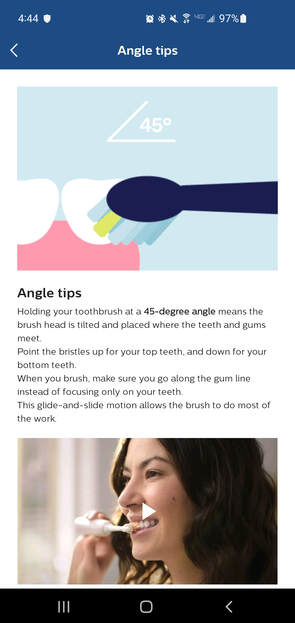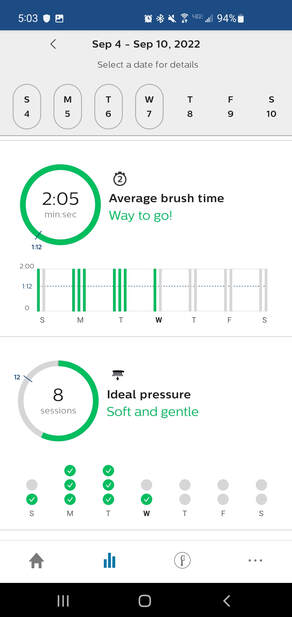 Dr. Eric Sikorski, Director of Programs & Research Dr. Eric Sikorski, Director of Programs & Research I have been brushing my teeth for 40 years, which is approximately 1,000 hours of practice. Not exactly the 10,000 hours to achieve mastery, according to K. Anders Ericsson, although seemingly sufficient for a menial task. I didn’t think much about my toothbrushing proficiency, but if pressed, I would have said it’s “good enough.” However, the last few trips to the dentist indicated otherwise. Nothing major, but clear signs that my technique was flawed. So, I had a choice to either continue to accept good enough or try to improve my performance. Yes, toothbrushing is a mundane task, but why not finally listen to the expert and do it better? I am an underperforming teeth brusher not because I’m incapable of performing the task but because I formed unproductive habits and lacked the motivation and tools to overcome those habits. I would buy an inexpensive toothbrush and then mindlessly move it around in my mouth for some reasonable amount of time twice a day. As a major step toward improvement, I bought an electric toothbrush (spurred on by my dentist, of course). At QIC, we know that in order to push yourself to the next level, you require insight into your performance. Not only do you need enough data, you need the right data. It must be presented to you in a way that’s easy for you to understand at a glance, and it must be coupled with feedback. Knowing you’re not performing at your peak level isn’t enough – you need to know what to do to fix it! I was pleased to see these features in the companion app to my toothbrush. The brush itself gives you brushing guidance through a timing feature and sensor. The downloadable app provides insights into your brushing habits, and importantly, gives you specific strategies you can use to improve. Feedback on brushing frequency, average duration, and performance is displayed after each session, along with corrective actions such as “slow down.” Taken together, this Cadillac of toothbrushes is designed to break unproductive habits, model and maintain the correct behaviors, assess performance, and provide feedback. From a human factors and training perspective, it’s quite impressive! Whether government or private industry, our customers are regularly faced with the choice of seeking opportunities for improvement over accepting good enough. Not about teeth brushing, necessarily, but for job tasks on which they are trained, practiced, and may not have to think much about. The most elite performers are motivated to improve even on the tasks that have become mundane. Despite the desire to constantly improve, how to improve may not always be clear to them. We, as human factors and training professionals, know how. Analyzing job tasks allows us to understand the negative habits, well-designed training and performance support can help break those habits, active participation and demonstrable results can motivate, and assessment and proper feedback can maintain performance. The fighter pilot, CEO, Navy SEAL, etc. choose to shun the good enough, whether in the mundane or extraordinary. It is part of what makes them great, and we can help focus that motivation to make them even greater. In the meantime, let’s start with brushing our teeth… properly.
0 Comments
Your comment will be posted after it is approved.
Leave a Reply. |
AuthorsThese posts are written or shared by QIC team members. We find this stuff interesting, exciting, and totally awesome! We hope you do too! Categories
All
Archives
June 2024
|



 RSS Feed
RSS Feed